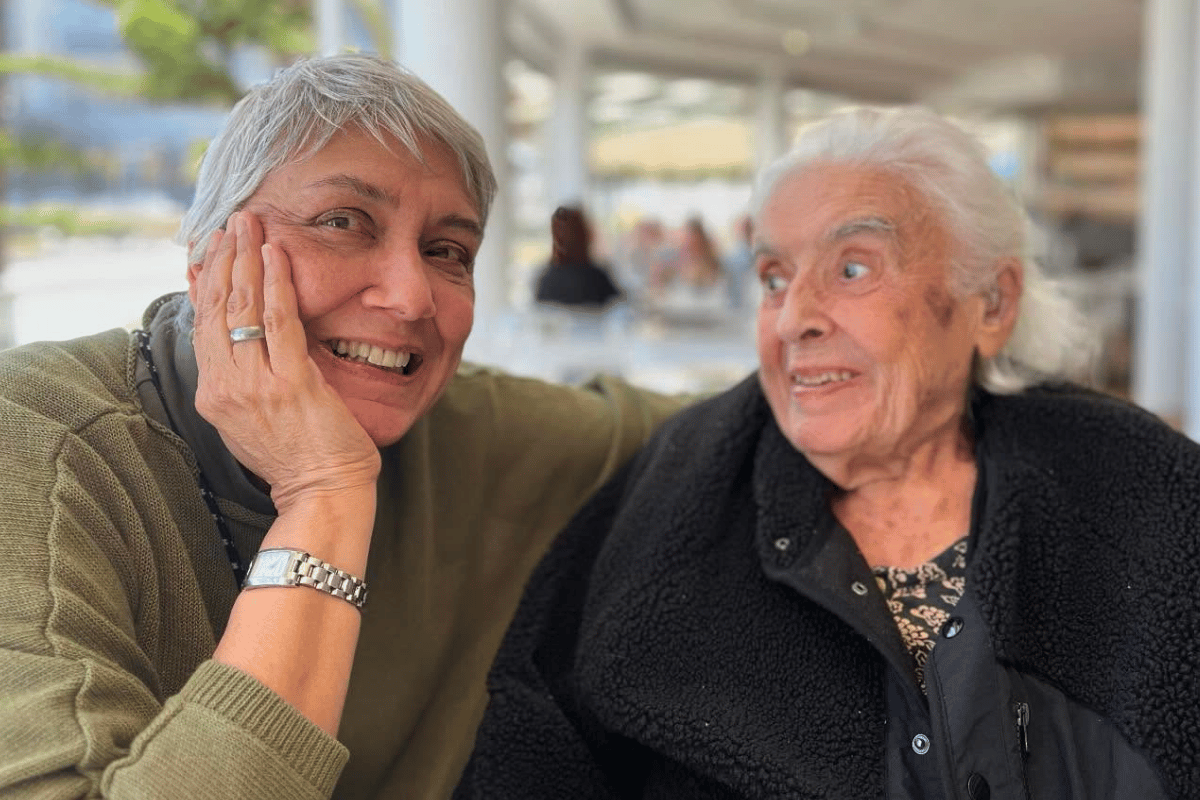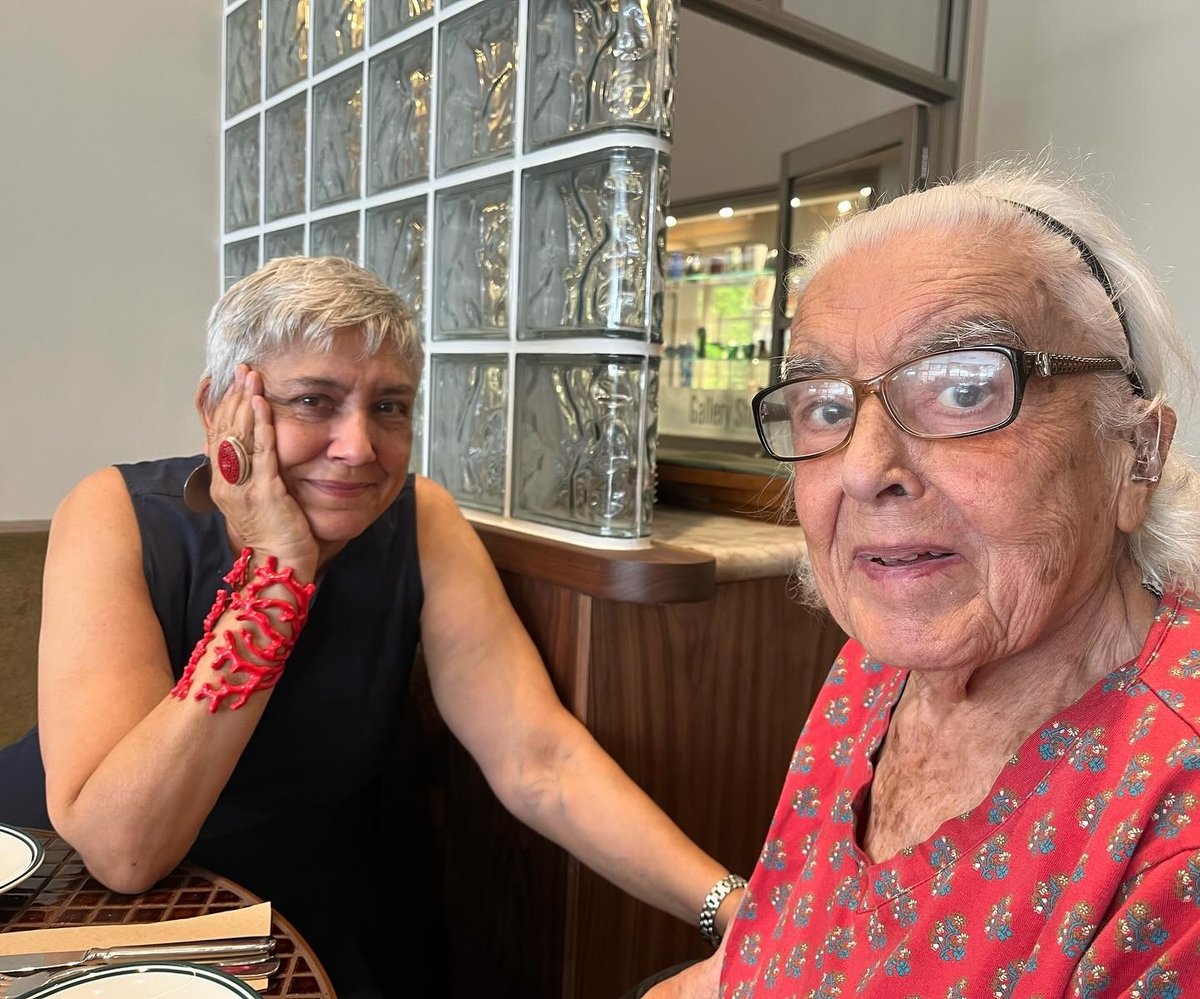
Caroline Baum never thought the mechanical whirr of a chair would become a triggering sound. But for the writer and broadcaster, it became the soundtrack to a daily disruption that was slowly corroding her sanity.
Caroline's mother, who is now 96, didn't have an easy life. Orphaned, for all intents and purposes, at age five due to a domestic violence incident, she entered a volatile foster system that left her feeling abandoned and unloved.
"I've heard since from psychologists that, at five, that's quite an important age in terms of child development," Caroline told the host of Mamamia's MID podcast, Holly Wainwright, when the pair sat down to talk about the complicated reality of caring for ageing parents — a reality that defies neat narratives of gratitude and duty, revealing instead the messy human truths of resentment, love, obligation and guilt.
"If something earth-shattering happens to you, one of your survival techniques can be to build a carapace around yourself in order to survive, where everything becomes entirely and only about you. That is the beginnings of narcissism."
Years later, Caroline has certainly noticed traits of narcissism within her mother. But the writer didn't realise how bad things would get when she and her husband agreed to house the then-90-year-old.
Watch: Julia's question for mothers with grown children. Post continues after video.





























































































